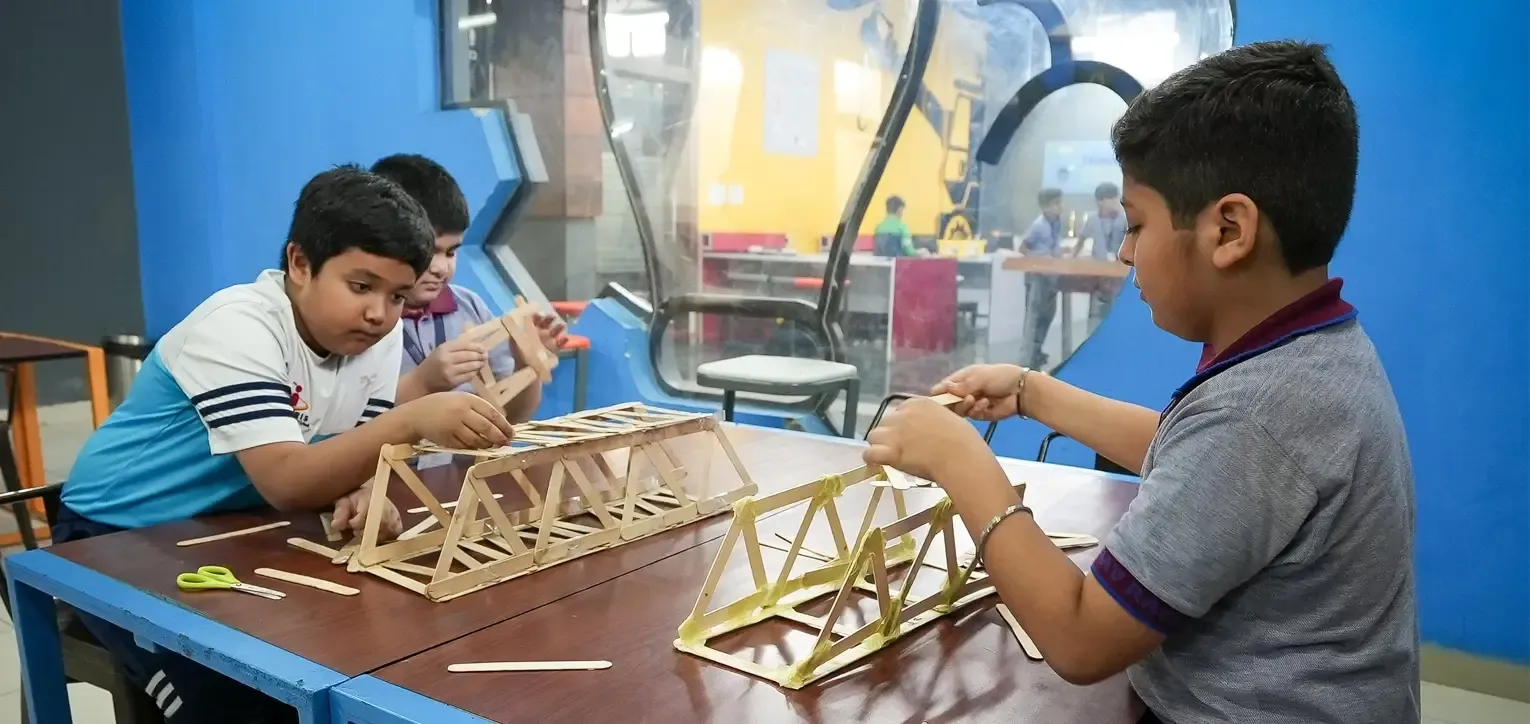Education has become a global commodity, and parents seek an education that prepares their children to face life in a global atmosphere. Of the various educational frameworks working in India, the most distinct are IB schools. But what then makes them so coveted? What is the difference between them and the conventional Indian school system? Why do they achieve such popularity? Let’s learn more about what makes IB schools in India tick in a simple and lucid manner. The International Baccalaureate is a well-known international curriculum for school education. It is known for developing critical thinking, problem-solving, and a globally minded outlook. Starting in Switzerland in 1968, the International Baccalaureate has designed four programs: the Primary Years Programme, the Middle Years Programme, the Diploma Programme, and the Career-Related Programme. Thus, these programs offer comprehensive schooling for children aged 3 to 19. More than 200 schools in India offer an IB curriculum, from hub metros to towns. Considering this importance, it certainly stands out independently from traditional examination boards like CBSE or even ICSE because of recognition when joining universities internationally. IB schools focus less on academic achievement and more on developing independent thinking, questioning ideas, and linking learning to real-life situations. While traditional boards often emphasise learning by rote and standardised tests, the IB programs place a strong emphasis on communication, creativity, and cultural understanding. Here are some key differences that parents might find appealing: Indian parents are increasingly looking for education systems that prepare their children for global opportunities. As the world becomes more interconnected, the ability to adapt and thrive in diverse environments is a valuable skill. IB schools, with their emphasis on critical thinking and cross-cultural understanding, effectively meet this demand. Additionally, many parents appreciate the emphasis on creativity and exploration in IB schools, which is often lacking in traditional systems. Instead of relying solely on textbooks, students engage in projects, research, and discussions, making learning more dynamic and engaging. There’s a common perception that IB schools are only for expat families or those with high incomes. While it’s true that the fees for IB schools are generally higher than those for CBSE or ICSE schools, this is changing. Many IB schools in India now offer scholarships and financial aid, making them more accessible to a wider audience. Moreover, parents who aim to provide their children with global exposure and opportunities often consider the investment in an IB education worthwhile. In an IB school, no two days are the same. Students might start the day with discussions on current global events, followed by collaborative group projects or individual research tasks. Physical education, arts, and community service often feature prominently in the schedule, ensuring a balanced approach to learning. While the benefits are plenty, IB schools do come with certain challenges. The curriculum is rigorous and demands commitment from both students and teachers. Transitioning from traditional boards to an IB programme can also be an adjustment for families who are used to a different style of learning. Additionally, not all teachers in India are trained in the IB framework, which can affect the quality of education in some schools. However, as the demand for IB education grows, teacher training and resources are improving. One of the biggest advantages of an IB education is its recognition by universities worldwide. Admissions officers highly regard the IB Diploma Programme, in particular, for its academic rigour and emphasis on personal growth. IB students are often seen as well-prepared for the challenges of university life because they have already developed skills like research, time management, and independent learning. If you’re looking for an education that goes beyond textbooks and prepares your child for global opportunities, an IB school could be a great option. However, it’s important to consider factors like your child’s learning style, long-term goals, and the school’s overall fit with your family’s priorities. One of the standout features of IB schools is their emphasis on equipping students with skills that stay relevant beyond their school years. Unlike traditional systems, which often prioritise academic results alone, IB schools aim to nurture practical abilities like problem-solving, collaboration, and adaptability. Take the CAS (Creativity, Activity, Service) component of the IB Diploma Programme as an example. Students are encouraged to engage in activities that challenge them outside the classroom, such as organising a community event, pursuing a creative passion, or participating in sports. This holistic approach ensures that students develop a sense of responsibility, creativity, and teamwork—qualities essential for success in any field. Parents often ask whether the IB curriculum aligns with India’s rich cultural and academic traditions. The answer is a resounding yes. While IB schools have an international focus, they also allow for localisation of the curriculum to reflect the host country’s culture and history. For instance, many IB schools in India integrate aspects of Indian history, literature, and geography into their programmes, ensuring that students remain connected to their roots. In subjects like environmental science or art, students may study topics specific to India, such as the conservation of local ecosystems or traditional art forms. This blend of global and local perspectives helps students embrace their identity while understanding their place in a connected world. It also reassures parents who might be concerned about losing cultural values within an international framework. IB schools in India offer a refreshing approach to education. They focus on creating curious, confident, and compassionate learners. By emphasising inquiry, critical thinking, and global awareness, these schools are shaping students who are ready to make meaningful contributions in the future.Why Choose an International Baccalaureate School in India?

What is the International Baccalaureate?
What Sets IB Schools Apart?
Why Are IB Schools Gaining Popularity in India?
Are IB Schools Only for Expats or Wealthy Families?
What Does a Day in an IB School Look Like?
Challenges of IB Schools in India
How Do IB Schools Support University Applications?
Should You Consider an IB School for Your Child?
How Do IB Schools Foster Lifelong Skills?
Are IB Schools Right for Indian Culture?
Final Thoughts



